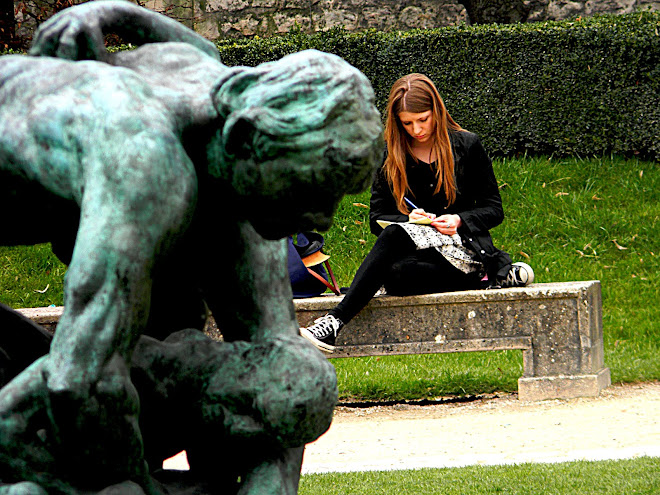As
he handed me my fourth glass of Pinot Grigio, the bartender leaned across the
table and whispered, “You were the best.
If you had a book, I would buy it right now.” It was maybe the nicest compliment I’d ever
received because it was from a stranger who had no reason to say such a
thing—no bias or personal investment in my feelings—so I figured he must really
mean it. It was my MFA thesis
reading. I had just read aloud from a
chapter about the way women in my family danced and how I used to want to grow
up to be like them: all hips and thighs and smiles and a certain winking
grace.
I
had arrived early to the reading that evening and the bartender and I had
chatted a bit while the other readers drifted in with their families. I was alone.
I had been dreading attending that reading for months—almost as much as
I dread holidays like Thanksgiving and Christmas. I had pictured my classmates sitting with
their families or their boyfriends/girlfriends smiling proudly, just as I
pictured they would do a week later at graduation. And I had pictured myself alone. And I was, at first.
On
my way to the reading I almost cried as I crossed the intersection of 12th
Street and 5th Avenue. I was
thinking of my younger brothers and an inside joke we have about pigeons. I was thinking of all the people I had
written about—my family, old friends, old loves... I was thinking about all the people I felt
like I had lost. I was thinking about
how sometimes you have to lose a lot of things—a lot of people—to get what you
want, or to get to where you want to be.
Every page of my thesis was written as a love letter to one man or
another that I had once loved. But I had
not written about love, precisely; I had written about myself. The goal was to explain myself so well that
someone would be able to know me well enough to love me. I’ve always had this idea that true love is
knowing someone. I want to be
known. I want to be loved. I don’t know if I’m any good at love, but I
seem to be halfway decent at writing, so I’ve always hoped my writing might
help me get what I want. And I was
almost crying because I had written what was practically a book of metaphorical
love letters and no one had written back.
I was worried that I would always be the person I had written about
being, a perpetual outsider, who ran away from home and who kept running and
looking and hoping for something.
As
it turns out, I was not alone at my thesis reading. After I got my first glass of Pinot Grigio
from the bartender, my friends began to arrive.
A friend I had met while I was living abroad. My thesis adviser, who feels like a mother to
me and who smiled at me and hugged me like she almost was. A new friend I had met in my MFA program. My classmates who have turned into great
friends. Someone I care a lot about. And then, all the friends I had made at the
office I worked at for the past year and a half. I had people—people I had cried with, drank
with, danced with, grown with. I had
moved on. I was no longer the sad,
lonely little girl I had written about being.
That was just a story.
And
as I read that story aloud, I looked out at the faces of people I loved. I looked at my adviser, who had read the
whole story and who knew me through it.
I looked at my friends who had read the story and at someone I care
about who was reading it in order to get to know me. And it looked like I was starting to get
exactly what I had always wanted.
I
have spent a lot of time alone in bars in the past year. I like bartenders. I like the good ones who can sense when to
draw you into conversation and when to leave you lost in your thoughts. And so it seemed fitting that, at what felt
like either an ending or a beginning, there was a bartender complimenting the
piece of my writing that I had read aloud.
On my worst days, I have thought to myself: I don’t have a family; I have drinks. And it has been true. I spent Christmas without any family—or even
friends—drinking in a Japanese bar on the Upper East Side, chatting with the
two bartenders. But family is not always
the picture on a Christmas card, or even the proud, smiling thing I pictured it
being for my classmates. Sometimes family
is just the group of people you come from.
I come from tough, mean, beautiful people who are quick to anger and
perpetually too tired to love well. I
come from women who danced their way through bars and kitchens, into hearts and
beds. And I am lucky because they have
given me a great story, nice hips and a certain winking grace. But the truly lucky thing is that the group
of people you come from are just that.
They are what you come from. You
can move on. You can go anywhere.
And I'm lucky these days when I look at the faces of people I love and think to myself: you are here.



No comments:
Post a Comment